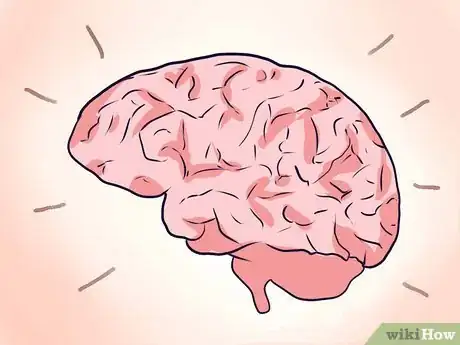This article was co-authored by William Schroeder, MA, LPC, NCC. William Schroeder is a Licensed Professional Counselor and the Co-Owner of Just Mind, a counseling center in Austin, Texas that aims to remove the stigma from therapy. With more than 14 years of experience, he specializes in cognitive counseling with adults on issues such as loss, life transition, happiness, relationships, and career exploration. He has also received advanced training and works with clients with ADHD and Aspergers (ASD). William and Just Mind have been featured in publications such as The New York Times, Business Insider, and Readers Digest. William holds a BBA in Marketing from Loyola University, New Orleans, and an MA in Counseling Psychology from St. Mary’s University.
There are 13 references cited in this article, which can be found at the bottom of the page.
This article has been viewed 42,719 times.
Being fatalistic means thinking that what is going to happen can't be changed. Fatalism tends to be associated with a negative, pessimistic, passive outlook. In other words, being fatalistic means having feelings of powerlessness or hopelessness about life.[1] [2] Adopting a fatalistic attitude can have negative consequences such as undermining personal responsibility, difficulty in making choices, and procrastination.[3] [4]
Steps
Ditching Old Ways of Thinking
-
1Take responsibility for failure. Fatalism approaches situations by assuming they were inevitable, and nothing could have been done to change them. This belief often happens when you don't feel like you have any power in a situation. Studies show that re-framing failures as being due to a lack of effort (changeable) versus a lack of ability (unchangeable) lead to better performance in the future.[5] This is likely because viewing a mistake as the result of actions that you and others took, as opposed to fate, allows you to feel more empowered about learning from the situation.
- To own up to your failure, think back on different ways that your lack of effort may have contributed to your failing to achieve something. Then think about how you might change in the future; if you found yourself forgetting to work on a task, for example, you might try putting it into your calendar to help remind you.
-
2Think back on changes you brought about. Help ditch old ways of thinking by reflecting on your life and on parts of it that you did not like but that you worked to change. Engaging in this exercise will remind you that if you worked to change things before, you can do so again.
- As an example of a change you might have caused, maybe you were dissatisfied with your monthly income and you worked hard to find a job with a higher salary.
Advertisement -
3Try not thinking about it. Although easier said than done, try not to think about whether things are determined or not, and just try your best; see where you land, you may be pleasantly surprised at what hard and smart work can lead to![6] There are several steps you can test out to get your fatalistic views off your mind:
- Think about an interesting distractor thought instead. It is tough to entertain multiple thoughts at once; use this to your advantage. For example, if you're procrastinating on your math work because you think everything is predetermined so what's the point in trying, try thinking instead about the rewards you might obtain from finishing your math degree.[7]
- Try exposure. Give yourself 20 minutes a day to think about determinism and your fatalistic views. Although this may be painful at the time, by letting your thoughts air, you may find yourself not thinking about them for the rest of the day.[8]
- Try postponing the thought. If fatalistic thoughts come to mind, try telling yourself that you will get back to those thoughts next week, but for now you won't think about them.[9]
-
4Counteract your hindsight biases. Sometimes, things can seem determined because of a hindsight bias: the idea that outcomes seem obvious after they have occurred. In other words, the hindsight bias occurs when people feel that they "knew it all along" despite the fact that they didn't. [10] You can reduce the hindsight bias by identifying and dealing with its causes:
- Need for closure. This refers to the idea that one motivation some people have is to view the world as a predictable place. After something happens, holding the belief that it all makes sense and was predictable lets the issue be put to rest. Try to reduce your need for closure by accepting that many things are just unknown and that so far, things have still gone mostly OK.[11]
- Processing fluency. When it is easy to come to a conclusion about something, it can seem as if the outcome was inevitable. For example, you might view a driver who cuts you off on the road as being a jerk. This may lead to the belief that his behavior was inevitable because that's just who he is as a person.
- You can combat processing fluency by imagining all the different ways that might have caused him to change lanes abruptly. Maybe the driver was in an emergency situation; maybe his wife was pregnant and he was rushing her to the hospital. Maybe he cut you off accidentally and didn't see you at all. Or, what if he spilled coffee on his pants and swerved into the other lane? All of these possibilities make the outcome seem less inevitable. [12]
Adding New Ways of Thinking
-
1Consider the complexity of the world. Even if it is true that the world always obeys physical laws and that determinism is true, it is still the case that a) we do not know how events will unfold until they do because b) the world is incredibly complex and difficult to predict.
- This means that you won't know what the outcome will be until you have tried your best. Remember this next time you are thinking of giving up because you think the outcome is already determined.
- To think about how complex the world is, try to imagine all the people in it (about 7 billion). Then imagine all the different ways that their lives might intersect over one year. Our lives are connected directly, such as when you bump into someone at an airport, and indirectly, such as when you eat a piece of fruit that was harvested by someone halfway across the world. Then remember that people make up just one small aspect of the world: there are also some number of millions of different kinds of species of animals, and there's complicated weather systems, and other physical laws of nature, for example. The number of ways that all these things can interact with each other is staggeringly complex!
- For example, think about the butterfly effect, the idea that slight changes in initial conditions can change the ultimate outcome of the weather, or the idea that it is so difficult to roll dice to the same number each time because tiny differences in how the dice are thrown affect the ultimate outcome.[13]
- Now spend a few minutes thinking about other ways that the world is really complex and how small changes to the initial conditions of something can have interesting consequences for the final outcome.
-
2Learn about the complexity of the brain. If you adopt a fatalistic attitude because you view your behaviors as controlled by neurons firing in your brain, consider that the brain and its trillions of connections is probably the most complex system, and therefore one of the least predictable, in the universe.
- In most cases, it is very difficult to accurately predict how people will behave in the future, because there are often many underlying variables that influence any individual's behavior that may not affect another's behavior.
- This means that even if behavior is ultimately determined by the physical laws that govern the brain, the actual output of the brain (behavior) is influenced by so many things it may as well not be determined. There is often no way to know what an outcome will be without trying your best to get the outcome that you want.
- To learn more about how complex the brain is and what this means for predicting future behavior, try reading some articles pulled from an internet search using the keywords, complexity + human brain.
-
3Engage in thought experiments. If you have a fatalistic attitude, try the following thought experiment. Imagine that the outcome of your goal, say, finishing your math degree, will ultimately be positive, but that you have to first get over an initial hump of negativity and passiveness.
- This means that your current fatalistic view is actually just part of the determined path where, through hard work and persistent effort on your part, you ultimately succeed in your goal, finishing your math degree. Sound far-fetched? Well how do you know until you try!?
- Or, try the following thought experiment. Think about how complex and uncertain the world can be. This will help you to realize that even if things are determined, outcomes are often unknown due to all the possibilities; from this perspective, even if determinism is true in theory, in practice it is not because the world is so unpredictable due to all the ways that things can unfold. Imagine all the ways that 16 billiard balls could be arranged. Seems simple enough, and yet, there are actually 3,360 ways to arrange them (16 x 15 x 14).[14] The world, human behavior, and so on, is so much more complicated than arranging billiard balls! Try to imagine all the ways that all the forces of the world might interact.
-
4Re-assess your goals. Being fatalistic is associated with having goals that are very difficult to achieve. It may be the case that, when something seems impossible to achieve, we default to believing in fate: what will be will be. This may be a kind of rationalization that allows us to wash our hands of incompatible feelings whereby we want to achieve a goal but know that we actually cannot [15]
- To change your goals, make them more concrete and actionable. Vague goals feel impossible to achieve because they are not clearly defined, so it is unclear how they could actually be achieved.
- To make goals more actionable, break them into smaller more digestible chunks. For example, if you want to learn the coding language Python but this feels like an insurmountable task, break it down further:
- Start by researching books that can teach you Python.
- Once you select a book, set a goal to read one chapter per week. Write this down and cross it off every time you succeed at it. This may help you to build your confidence while getting rid of your fatalistic attitude.
Increasing Self-Efficacy
-
1Learn how self-efficacy is tied to fatalism. When people have low-self efficacy, they don't believe that their efforts have any power to change their behavior or a situation. They may feel powerless or hopeless. This can lead to a fatalistic outlook that interprets situations as "just the way things are," rather than as experiences to be examined and learned from.[16]
- For example, a student with low self-efficacy may feel like he is simply "bad at math." No matter how hard he studies, he never seems to improve. He may stop hoping to do better because he believes his skills are innately limited. This is a fatalistic approach.
- On the other hand, a student with high self-efficacy may feel like she is "bad at math," but view the situation as one that she can change with effort. She may set higher goals for herself and seek help in order to accomplish them. This feeling that the student has some power over the outcome helps her perform.[17]
-
2Start small. To help you build feelings of self-efficacy -- or like you're able to change your behavior to influence an outcome -- it's helpful to experience success at things you try.[18] Try taking up a new hobby, such as cooking, learning a new language, or music. Make it something you connect with. As you succeed in this pursuit, you'll develop feelings of mastery, which will help you realize that you have the power to succeed in things you try.
- When you experience challenges or setbacks, which you likely will, think about them in terms of temporary roadblocks that you can overcome, rather than an innate limitation of your knowledge.[19] Few people start off being able to make a perfect souffle, but many people have learned.
- Take time to acknowledge your progress and successes along the way. Perhaps you knew exactly two words in Spanish when you started, and now you know 12. That's a success!
-
3Watch someone else. "Modeling" is another helpful way to build feelings of self-empowerment.[20] Watching a friend who is working on the same goal as you may help you feel more confident that your own actions can influence the result.
- You may also find it helpful to "role-play" through a particular situation with a friend. For example, perhaps you feel like you're never recognized for your effort at work. A fatalist thought would be "I'll never get any recognition." A thought of self-efficacy could be "I can talk to my boss about my work." Role-play that conversation with a friend and ask how she would approach it. This may help build your confidence. Cooperation with others can often increase people's feelings of self-efficacy, too.[21]
- Avoid using super achievers or perfectionists as models. These are unrealistic and unhelpful ways of approaching goals.
-
4Avoid generalizations. When you make generalizations about yourself or others, such as "I'm such a loser" or "Life really sucks," you're encouraging fatalism, or the belief that things just are the way they are and there's nothing you can do about them. You see a single event as representative of the way things will always be.
- For example, if you failed an exam, your thought might be "I'm such a loser, I'll never pass any of these tests." Challenge this thought by reminding yourself that you can change your behavior to affect future outcomes. Consider what you can do in the future. For example, you might ask to retake the test, see a tutor, or make up your grade with extra credit.[22]
- Remind yourself that one event or trait does not define you. You are not a "failure" if you fail an exam. You're a person who failed an exam. You are not a "loser" if you lose a sports game. You're a person who lost a sports game. Keeping things in perspective can help you stop thinking fatalistically.
-
5Ask for support. Support from family and loved ones is crucial to developing feelings of self-empowerment.[23] You can also ask for feedback on your strengths and areas for future development. Your friends and family may see strengths in you that you didn't even know were there. They may also be able to help you make a plan to learn and grow in a particular area for the future.
- Working with a therapist can also help you change your fatalistic thoughts.[24]
Warnings
- Don't go too far when counteracting fatalistic thinking. If you do, your thinking may become too extreme in the opposite direction; you may come to think you can do anything you put your mind to. The reality is, however unfortunate, that some things truly are out of our control. For example, if you're playing roulette, you cannot will yourself to win through effort, hope, or anything else - most forms of gambling are purely games of chance.⧼thumbs_response⧽
References
- ↑ http://web.mit.edu/holton/www/pubs/determinism&fatalism.pdf
- ↑ https://www.psychologytoday.com/blog/dont-delay/200805/past-present-future-does-time-orientation-influence-procrastination
- ↑ http://www.psychologicalscience.org/index.php/news/were-only-human/no-fate-or-fate-whats-your-choice.html
- ↑ http://www.sciencedirect.com/science/article/pii/S0092656606000833
- ↑ http://slatestarcodex.com/Stuff/dw1975_attributions.pdf
- ↑ http://www.apa.org/monitor/2011/10/unwanted-thoughts.aspx
- ↑ http://www.apa.org/monitor/2011/10/unwanted-thoughts.aspx
- ↑ http://www.apa.org/monitor/2011/10/unwanted-thoughts.aspx
- ↑ http://www.apa.org/monitor/2011/10/unwanted-thoughts.aspx
- ↑ http://pps.sagepub.com/content/7/5/411.short
- ↑ http://pps.sagepub.com/content/7/5/411.short
- ↑ http://pps.sagepub.com/content/7/5/411.short
- ↑ http://www.realclimate.org/index.php/archives/2005/11/chaos-and-climate/
- ↑ https://www.mathsisfun.com/combinatorics/combinations-permutations.html
- ↑ http://www.psychologicalscience.org/index.php/news/were-only-human/no-fate-or-fate-whats-your-choice.html
- ↑ http://serc.carleton.edu/NAGTWorkshops/affective/efficacy.html
- ↑ http://serc.carleton.edu/NAGTWorkshops/affective/efficacy.html
- ↑ http://serc.carleton.edu/NAGTWorkshops/affective/efficacy.html
- ↑ William Schroeder, MA, LPC, NCC. Licensed Professional Counselor. Expert Interview. 27 September 2021.
- ↑ https://depts.washington.edu/aedd/self_efficacy_text.html
- ↑ http://serc.carleton.edu/NAGTWorkshops/affective/efficacy.html
- ↑ http://psychcentral.com/lib/challenging-our-cognitive-distortions-and-creating-positive-outlooks/
- ↑ https://depts.washington.edu/aedd/self_efficacy_text.html
- ↑ William Schroeder, MA, LPC, NCC. Licensed Professional Counselor. Expert Interview. 27 September 2021.










































































